
Annamacharya
Institute of Technology & Sciences
Rajampet, Estd. 1998
ISO 9001:2015

Annamacharya
Institute of Technology & Sciences
Rajampet, Estd. 1998
ISO 9001:2015

The Department of Electrical and Electronics Engineering was established in the year 1998 with an intake of 40 students, and increased to 60,120 and 180 subsequently. So far, 17-batches have been graduated successfully.
The Department is headed by Dr. M. Padma Lalitha, Professor, who is actively monitoring the activities of the department. She is having more than 19 years of teaching experience.
The Department is facilitated with highly qualified, committed and expert faculty members. As a part of the academic plan, the department is making several plans to conduct International conference, National conference, FDPs, Guest lectures, Seminars, Inplant training, Industrial visit and Internship training for student’s development, organized with industrial collaboration.
The department is endowed with well equipped Laboratories that cater to the standards specified by the Jawaharlal Nehru Technological University, Anantapur as well as to architect the learning experience of Students.
We envision the Department as one of the best in the region with a stimulating environment to make an impact on and lead in the field through its Education and Research.
The mission of the Department is to provide an excellent and comprehensive education in the field of Electrical & Electronics Engineering which in turn moulds the students for a wide range of careers and to exhibit a high level of professionalism, ethical behavior and social responsibility.
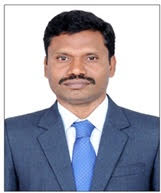
Associate Professor & Head
Department of Electrical and Electronics Engineering
Annamacharya University
Click Here for ProfileOur department is dedicated to nurturing the next generation of engineers through a blend of strong academic curriculum, hands-on learning, and a focus on innovation. We align our teaching and research with emerging areas such as Artificial Intelligence (AI), Internet of Things (IoT), Green and Renewable Energy, Smart Grid Technologies, and Electric Mobility.
To support cutting-edge education and research, our department is equipped with state-of-the-art laboratories, including: Advanced Power Electronics Lab, Renewable Energy Systems Lab, AI & IoT Integration Lab, Power Protection Systems Lab, Smart Energy Systems Lab.
These facilities empower students and researchers to explore real-time applications, work on interdisciplinary projects, and develop solutions for real-world energy and automation challenges.
Our committed faculty, industry collaborations, and student-centric approach create a dynamic learning environment that promotes technical excellence, innovation, and social responsibility. We also encourage students to participate in research, internships, entrepreneurship, and national-level competitions.
I warmly invite students, researchers, and industry partners to engage with our department and contribute to building a sustainable and technologically advanced future.
| S.No. | Programme Educational Objectives |
|---|---|
| PEO1 | To experience success in Electrical & Electronics Engineering and other diverse fields that requires analytical and technical skills. |
| PEO2 | To prepare students to identify and implement global, societal needs and constraints in designing new technology/product and follow professional ethics. |
| PEO3 | To inculcate in students professional attitude, effective communication skills and leadership qualities to succeed in multi-disciplinary teams. |
| PEO4 | To promote students to pursue professional development by continuous learning relevant to their career. |
| S.No. | PROGRAM OUTCOMES |
|---|---|
| PO1 | Engineering knowledge: Apply the knowledge of mathematics, science, engineering fundamentals, and an engineering specialization to the solution of complex engineering problems. |
| PO2 | Problem analysis: Identify, formulate, review research literature, and analyze complex engineering problems reaching substantiated conclusions using first principles of mathematics, natural sciences, and engineering sciences. |
| PO3 | Design/development of solutions: Design solutions for complex engineering problems and design system components or processes that meet the specified needs with appropriate consideration for the public health and safety, and the cultural, societal, and environmental considerations. |
| PO4 | Conduct investigations of complex problems: Use research-based knowledge and research methods including design of experiments, analysis and interpretation of data, and synthesis of the information to provide valid conclusions. |
| PO5 | Modern tool usage: Create, select, and apply appropriate techniques, resources, and modern engineering and IT tools including prediction and modeling to complex engineering activities with an understanding of the limitations. |
| PO6 | The engineer and society:Apply reasoning informed by the contextual knowledge to assess societal, health, safety, legal and cultural issues and the consequent responsibilities relevant to the professional engineering practice. |
| PO7 | Environment and sustainability: Understand the impact of the professional engineering solutions in societal and environmental contexts, and demonstrate the knowledge of, and need for sustainable development. |
| PO8 | Ethics: Apply ethical principles and commit to professional ethics and responsibilities and norms of the engineering practice. |
| PO9 | Individual and team work: Function effectively as an individual, and as a member or leader in diverse teams, and in multidisciplinary settings. |
| PO10 | Communication: Communicate effectively on complex engineering activities with the engineering community and with society at large, such as, being able to comprehend and write effective reports and design documentation, make effective presentations, and give and receive clear instructions. |
| PO11 | Project management and finance: Demonstrate knowledge and understanding of the engineering and management principles and apply these to one’s own work, as a member and leader in a team, to manage projects and in multidisciplinary environments. |
| PO12 | Life-long learning: Recognize the need for, and have the preparation and ability to engage in independent and life-long learning in the broadest context of technological change. |
| S.No. | Program Specific Outcomes |
|---|---|
| PSO1 | Able to analyze, design, and implement electrical & electronics systems and deal with the rapid pace of industrial innovations and developments. |
| PSO2 | Skillful to use application and control techniques to conventional and non- conventional energy systems. |
| Faculty Name | Designation | Qualification / Degree | Specialization | Date of Joining | Photo | Profile |
| Dr. M. Padma Lalitha | Professor | M. Tech, Ph. D | Power Systems | 22.10.1999 | 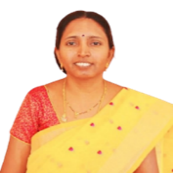 |
View |
| Dr. O. Hemakesavulu | Professor | M. Tech, Ph. D | Power Electronics | 18.02.2005 | 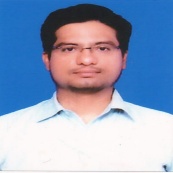 |
View |
| Dr. P. Balachennaiah | Associate Professor & HoD | M. Tech, Ph. D | Power Systems | 01.09.2008 | 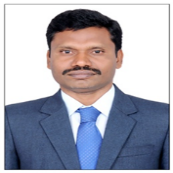 |
View |
| Dr. P. Gopi | Associate Professor | M. Tech, Ph. D | Power Engineering | 22.05.2017 | 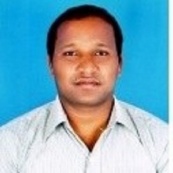 |
View |
| Dr. S. Suresh | Associate Professor | M. Tech, Ph. D | Power Electronics & Drives | 12.06.2019 | 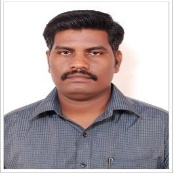 |
View |
| Dr. P. Bhaskara Prasad | Assistant Professor | M. Tech, Ph. D | Power Electronics | 10.12.2007 | 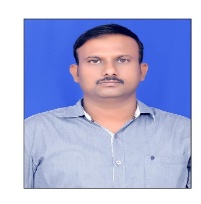 |
View |
| Mr. B. Murali Mohan | Assistant Professor | M. Tech. | Power Electronics | 19.12.2007 | 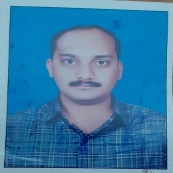 |
View |
| Dr. K. Harinath Reddy | Assistant Professor | M. Tech, Ph. D | Embedded System | 19.09.2008 | 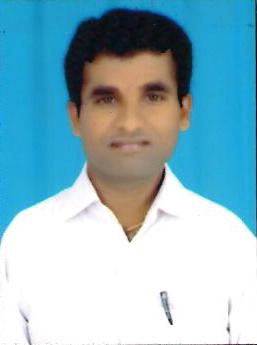 |
View |
| Dr. S. Sarada | Assistant Professor | M. Tech, Ph. D | Power Electronics | 25.09.2009 | 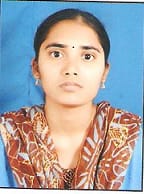 |
View |
| Dr. P. Suresh Babu | Assistant Professor | M. Tech, Ph. D | Power systems | 04.06.2011 | 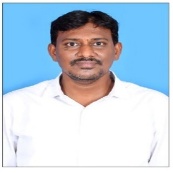 |
View |
| Dr. S. Muqthiar Ali | Assistant Professor | M. Tech, Ph. D | Power systems | 14.06.2012 | 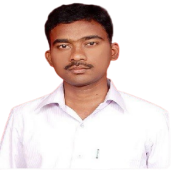 |
View |
| Dr. C. Ganesh | Assistant Professor | M. Tech. Ph. D | Power Industrial Drives | 14.06.2012 | 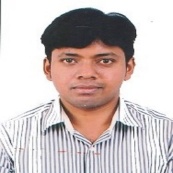 |
View |
| Mr. R. Madhan Mohan | Assistant Professor | M. Tech. | Power systems | 22.06.2007 | 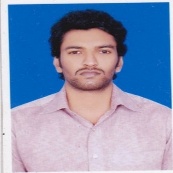 |
View |
| Mr. L. Baya Reddy | Assistant Professor | M. Tech. | Power Electronics & Drives | 23.06.2014 | 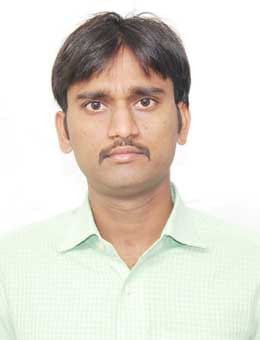 |
View |
| Mr. M. Ramesh | Assistant Professor | M. Tech. | Power systems | 23.06.2014 | View | |
| Mr. N. Sreeramula Reddy | Assistant Professor | M. Tech. | Power Electronics | 26.06.2014 | View | |
| Mr. M. Sai Sandeep | Assistant Professor | M. Tech. | Power systems | 19.06.2015 | View | |
| Mrs. M. Manasa | Assistant Professor | M. Tech. | Power Engineering | 02.01.2017 | ||
| Mr. M. Mahesh | Assistant Professor | M. Tech. | Power systems | 18.01.2021 | View | |
| Dr. K. Dhananjaya Babu | Associate Professor | M. Tech, Ph. D | Power Engineering | 12.03.2021 | View | |
| Mrs. A. Hima Bindu | Assistant Professor | M. Tech. | Power systems | 12.03.2021 | View | |
| Mr. T. Arun Kumar | Assistant Professor | M. Tech. | Power systems | 08.10.2021 | View | |
| Ms. S. Rubeena Bi | Assistant Professor | M. Tech. | Power systems | 06.02.2022 | View | |
| Dr. K. Vijaya Bhaskar | Assistant Professor | M. Tech, Ph. D | Power Engineering | 07.02.2022 | View | |
| Mrs. M. Swathi | Assistant Professor | M. Tech. | Power systems | 25.05.2022 | View | |
| Mrs. M. Swetha | Assistant Professor | M. Tech. | Control Systems | 08.06.2022 | View | |
| Mr. G. Mahaboob Subhan | Assistant Professor | M. Tech. | Power systems | 27.06.2022 | View | |
| Dr. J. Sreeranganayakulu | Associate Professor | M. Tech, Ph. D | Power System Operation & Control | 01.07.2022 | View | |
| Mr. A. Sathish Babu | Assistant Professor | M. Tech. | Power systems | 01.02.2023 | ||
| Mrs. K. Naga Prasanna | Assistant Professor | M. Tech. | Electrical Power Systems | 01.12.2023 | ||
| Mr. B. Anil Kumar | Assistant Professor | M. Tech | Electrical Power Systems | 10.03.2023 | View | |
| Dr. N. C. Alluraiah | Assistant Professor | M. Tech, Ph. D | Energy Systems | 09.05.2023 | View | |
| Mr. T. Penchalaiah | Assistant Professor | M. Tech. | Electrical Power Systems | 06.10.2023 | View | |
| Dr. S. Venkateswarlu Reddy | Associate Professor | M. Tech, Ph. D | Electrical Power Systems | 11.10.2023 | View | |
| Ms. K. Sravani | Assistant Professor | M. Tech | Power Systems | 29.10.2024 | View |
| S. No | Faculty Name | Designation | Qualification / Degree | Specialization | Date of Joining | Photo | Profile |
| 1 | Dr. M. Padma Lalitha | Professor | M. Tech, Ph. D | Power Systems | 22.10.1999 |  |
View |
| 2 | Dr. O. Hemakesavulu | Professor | M. Tech, Ph. D | Power Electronics | 18.02.2005 |  |
View |
| 3 | Dr. P. Balachennaiah | Associate Professor & HoD | M. Tech, Ph. D | Power Systems | 01.09.2008 |  |
View |
| 4 | Dr. P. Gopi | Associate Professor | M. Tech, Ph. D | Power Engineering | 22.05.2017 |  |
View |
| 5 | Dr. S. Suresh | Associate Professor | M. Tech, Ph. D | Power Electronics & Drives | 12.06.2019 |  |
View |
| 6 | Dr. P. Bhaskara Prasad | Assistant Professor | M. Tech, Ph. D | Power Electronics | 10.12.2007 |  |
View |
| 7 | Mr. B. Murali Mohan | Assistant Professor | M. Tech. | Power Electronics | 19.12.2007 |  |
View |
| 8 | Dr. K. Harinath Reddy | Assistant Professor | M. Tech, Ph. D | Embedded System | 19.09.2008 |  |
View |
| 9 | Dr. S. Sarada | Assistant Professor | M. Tech, Ph. D | Power Electronics | 25.09.2009 |  |
View |
| 10 | Dr. P. Suresh Babu | Assistant Professor | M. Tech, Ph. D | Power systems | 04.06.2011 |  |
View |
| 11 | Dr. S. Muqthiar Ali | Assistant Professor | M. Tech, Ph. D | Power systems | 14.06.2012 | 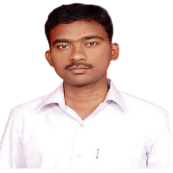 |
View |
| 12 | Dr. C. Ganesh | Assistant Professor | M. Tech. Ph. D | Power Industrial Drives | 14.06.2012 | 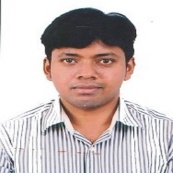 |
View |
| 13 | Mr. R. Madhan Mohan | Assistant Professor | M. Tech. | Power systems | 22.06.2007 | 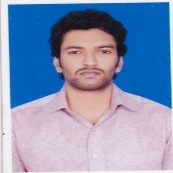 |
View |
| 14 | Mr. L. Baya Reddy | Assistant Professor | M. Tech. | Power Electronics & Drives | 23.06.2014 |  |
View |
| 15 | Mr. M. Ramesh | Assistant Professor | M. Tech. | Power systems | 23.06.2014 | View | |
| 16 | Mr. N. Sreeramula Reddy | Assistant Professor | M. Tech. | Power Electronics | 26.06.2014 | View | |
| 17 | Mr. M. Sai Sandeep | Assistant Professor | M. Tech. | Power systems | 19.06.2015 | View | |
| 18 | Mrs. M. Manasa | Assistant Professor | M. Tech. | Power Engineering | 02.01.2017 | ||
| 19 | Mr. M. Mahesh | Assistant Professor | M. Tech. | Power systems | 18.01.2021 | View | |
| 20 | Dr. K. Dhananjaya Babu | Associate Professor | M. Tech, Ph. D | Power Engineering | 12.03.2021 | View | |
| 21 | Mrs. A. Hima Bindu | Assistant Professor | M. Tech. | Power systems | 12.03.2021 | View | |
| 22 | Mr. T. Arun Kumar | Assistant Professor | M. Tech. | Power systems | 08.10.2021 | View | |
| 23 | Ms. S. Rubeena Bi | Assistant Professor | M. Tech. | Power systems | 06.02.2022 | View | |
| 24 | Dr. K. Vijaya Bhaskar | Assistant Professor | M. Tech, Ph. D | Power Engineering | 07.02.2022 | View | |
| 25 | Mrs. M. Swathi | Assistant Professor | M. Tech. | Power systems | 25.05.2022 | View | |
| 26 | Mrs. M. Swetha | Assistant Professor | M. Tech. | Control Systems | 08.06.2022 | View | |
| 27 | Mr. G. Mahaboob Subhan | Assistant Professor | M. Tech. | Power systems | 27.06.2022 | View | |
| 28 | Dr. J. Sreeranganayakulu | Associate Professor | M. Tech, Ph. D | Power System Operation & Control | 01.07.2022 | View | |
| 29 | Mr. A. Sathish Babu | Assistant Professor | M. Tech. | Power systems | 01.02.2023 | ||
| 30 | Mrs. K. Naga Prasanna | Assistant Professor | M. Tech. | Electrical Power Systems | 01.12.2023 | ||
| 31 | Mr. B. Anil Kumar | Assistant Professor | M. Tech | Electrical Power Systems | 10.03.2023 | View | |
| 32 | Dr. N. C. Alluraiah | Assistant Professor | M. Tech, Ph. D | Energy Systems | 09.05.2023 | View | |
| 33 | Mr. T. Penchalaiah | Assistant Professor | M. Tech. | Electrical Power Systems | 06.10.2023 | View | |
| 34 | Dr. S. Venkateswarlu Reddy | Associate Professor | M. Tech, Ph. D | Electrical Power Systems | 11.10.2023 | View | |
| 35 | Ms. K. Sravani | Assistant Professor | M. Tech | Power Systems | 29.10.2024 | View |
| S. No. | Name | Qualification | Designation | Date of Joining | Nature of Association (Regular/Contract/ Adjunct) |
| 1 | Dr. M. Padma Lalitha | M.Tech, Ph.D. | Professor & Head | 22.10.1999 | Regular |
| 2 | Dr.O. Hema Kesavulu | M.Tech., Ph.D. | Professor | 18.02.2005 | Regular |
| 3 | Dr.R.Shankar | M.E, Ph.D. | Professor | 09.06.2017 | Regular |
| 4 | Dr.Y.Prakash | M.E, Ph.D | Professor | 09.06.2021 | Regular |
| 5 | Dr. P.B. Chennaiah | M.Tech., Ph.D. | Associate Professor | 01.09.2008 | Regular |
| 6 | Dr. P.Gopi | M.Tech., Ph.D. | Associate Professor | 22.05.2017 | Regular |
| 7 | Dr. S. Suresh | M.Tech., Ph.D. | Associate Professor | 12.06.2019 | Regular |
| 8 | Dr.K.Prakasam | M.E, Ph.D | Associate Professor | 13.06.2017 | Regular |
| 9 | Dr.K.Dhananjaya Babu | M.Tech., Ph.D. | Associate Professor | 12.03.2021 | Regular |
| 10 | Dr.J.Sreeranganayakulu | M.Tech., Ph.D. | Associate Professor | 01.07.2022 | Regular |
| 11 | Dr.S.Venkateswarlu Reddy | M.Tech., Ph.D. | Associate Professor | 11.10.2023 | Regular |
| 12 | Mr.P. Bhaskara Prasad | M.Tech. | Assistant Professor | 10.12.2007 | Regular |
| 13 | Mr.K. Harinath Reddy | M.Tech. | Assistant Professor | 19.09.2008 | Regular |
| 14 | Mr.C. Ganesh | M.Tech. | Assistant Professor | 14.06.2012 | Regular |
| 15 | Mr.R. Madhan Mohan | M.Tech. | Assistant Professor | 22.06.2007 | Regular |
| 16 | Mr.N. Sreeramula Reddy | M.Tech. | Assistant Professor | 26.06.2014 | Regular |
| 17 | Mr.S. Eranna | M.Tech. | Assistant Professor | 01.06.2017 | Regular |
| 18 | Mrs.M. Manasa | M.Tech. | Assistant Professor | 02.01.2017 | Regular |
| 19 | Mrs.A. Hima Bindu | M.Tech. | Assistant Professor | 12.03.2021 | Regular |
| 20 | Mr.M. Amaranatha Reddy | M.Tech. | Assistant Professor | 01.06.2017 | Regular |
| 21 | Mr.B. Murali Mohan | M.Tech. | Assistant Professor | 19.12.2007 | Regular |
| 22 | Mr.P. Venkata Ravi Kiran | M.Tech. | Assistant Professor | 01.06.2017 | Regular |
| 23 | Mr.L. Baya Reddy | M.Tech. | Assistant Professor | 23.06.2014 | Regular |
| 24 | Mr.D. Sai Krishna Kanth | M.Tech. | Assistant Professor | 04.06.2015 | Regular |
| 25 | Mr.P. Suresh Babu | M.Tech. | Assistant Professor | 04.06.2011 | Regular |
| 26 | Mr.M. Sai Sandeep | M.Tech. | Assistant Professor | 19.06.2015 | Regular |
| 27 | Mrs.S. Sarada | M.Tech. | Assistant Professor | 25.09.2009 | Regular |
| 28 | Mr.S. Muqthiar Ali | M.Tech. | Assistant Professor | 14.06.2012 | Regular |
| 29 | Mr.M. Ramesh | M.Tech. | Assistant Professor | 23.06.2014 | Regular |
| 30 | Mr.M.Mahesh | M.Tech. | Assistant Professor | 18.01.2021 | Regular |
| 31 | Mr.C.Yesupadam | M.Tech. | Assistant Professor | 30.12.2017 | Regular |
| 32 | Mr.K.Vijaya Bhaskar | M.Tech. | Assistant Professor | 07.02.2022 | Regular |
| 33 | Mr.T.Arun Kumar | M.Tech. | Assistant Professor | 08.10.2021 | Regular |
| 34 | Ms.S.Rubeena Bi | M.Tech. | Assistant Professor | 06.02.2022 | Regular |
| 35 | Mrs.M.Swathi | M.Tech. | Assistant Professor | 25.05.2022 | Regular |
| 36 | Mrs.M.Sweetha | M.Tech. | Assistant Professor | 08.06.2022 | Regular |
| 37 | Mr.G.Mahaboob Subhan | M.Tech. | Assistant Professor | 27.06.2022 | Regular |
| 38 | Mr.A.Sathish Babu | M.Tech. | Assistant Professor | 22.12.2022 | Regular |
| 39 | Mr.B.Anil Kumar | M.Tech. | Assistant Professor | 10.03.2023 | Regular |
| 40 | Mr.N.C.Alluraiah | M.Tech. | Assistant Professor | 22.12.2022 | Regular |
| 41 | Mrs.K.Naga Prasanna | M.Tech. | Assistant Professor | 09.05.2023 | Regular |
| 42 | Mr.T.Penchalaiah | M.Tech. | Assistant Professor | 06.10.2023 | Regular |
| S. No. | Name | PAN No. | Qualification University Degree | Date of Receiving Degree | Area of Specialization | Designation | Date of Joining | Date on which Designated as Professor/ Associate Professor | Currently Associated(Y/N) | Nature of Association (Regular/Contract/ Adjunct) | If contractual mention Full time or Part time | Date of Leaving(Incase Currently Associated is “No”) |
| 1 | Dr. M. Padma Lalitha | ALOPM6581H | M.Tech, Ph.D | 02.05.2011 | Power systems | Professor & Head | 22.10.1999 | 04.04.2011 | Y | Regular | Full time | |
| 2 | Dr.O. HemaKesavulu | AAMPO4441K | M.Tech., Ph.D. | 25.01.2021 | Power Electronics | Professor | 18.02.2005 | 25.01.2021 | Y | Regular | Full time | |
| 3 | Dr.R.Shankar | BLCPS2142H | ME, Ph.D. | 04.02.2017 | Power Electronics and Drives | Professor | 09.6.2017 | Y | Regular | Full time | ||
| 4 | Dr.Y.Prakash | QWRPY4398G | M.E, Ph.D | 06.03.2017 | Power System | Professor | 09.06.2021 | Y | Regular | Full time | ||
| 5 | Dr. P.B. Chennaiah | BFFPP4379L | M.Tech., Ph.D. | 06.01.2017 | Power systems | Associate Professor | 01.09.2008 | 01.11.2017 | Y | Regular | Full time | |
| 6 | Dr. P.Gopi | AXCPG6062H | M.Tech., Ph.D. | 10.08.2017 | Power Electronics & Drives | Associate Professor | 22.05.2017 | Y | Regular | Full time | ||
| 7 | Dr. S. Suresh | ETLPS8385A | M.Tech., Ph.D. | 20.04.2019 | Power Engineering | Associate Professor | 12.06.2019 | Y | Regular | Full time | ||
| 8 | Dr.K.Prakasam | AOYPP4273J | M.E, Ph.D | 16.05.2017 | Applied Electronics | Associate Professor | 11.06.2019 | Y | Regular | Full time | ||
| 9 | Dr.K.Dhananjaya Babu | BHYPK5133J | M.Tech., Ph.D. | 19.10.2018 | Power Engineering | Associate Professor | 12.03.2021 | Y | Regular | Full time | ||
| 10 | DrJ.Sreeranganayakulu | AIKPJ5256B | M.Tech., Ph.D | 12.12.2022 | Power System Operation & Control | Associate Professor | 01.07.2022 | 12.12.2022 | Y | Regular | Full time | |
| 11 | Dr.P. Jyoshna | BMQPP6083H | M.Tech. | 12.08.2021 | Power systems | Associate Professor | 21.06.2019 | Y | Regular | Full time | 06.01.2023 | |
| 12 | Dr.B. Madhusudhana Reddy | BAVPB1906J | M.Tech. | 30.05.2020 | Power Electronics | Associate Professor | 05.06.2017 | 30.05.2020 | N | Regular | Full time | 30.05.2023 |
| 13 | Mr.P. Bhaskara Prasad | BBIPP4523K | M.Tech. | 20.08.2008 | Power Electronics | Assistant Professor | 10.12.2007 | Y | Regular | Full time | ||
| 14 | Mr.K. Harinath Reddy | AFYPH7858E | M.Tech. | 15.02.2010 | Embedded System | Assistant Professor | 19.09.2008 | Y | Regular | Full time | ||
| 15 | Mr.C. Ganesh | ARFPC5616G | M.Tech. | 06.09.2010 | Power Industrial Drives | Assistant Professor | 14.06.2012 | Y | Regular | Full time | ||
| 16 | Mr.R. Madhan Mohan | BJOPM2590P | M.Tech. | 10.01.2013 | Power systems | Assistant Professor | 22.06.2007 | Y | Regular | Full time | ||
| 17 | Mr.N. Sreeramula Reddy | AHQPN7785G | M.Tech. | 10.05.2014 | Power Electronics | Assistant Professor | 26.06.2014 | Y | Regular | Full time | ||
| 18 | Mr.S. Eranna | ABEPE2648M | M.Tech. | 20.12.2017 | Power systems | Assistant Professor | 01.06.2017 | Y | Regular | Full time | ||
| 19 | Mrs.M.Manasa | BYZPM2377Q | M.Tech. | 10.11.2014 | Power Engineering | Assistant Professor | 02.01.2017 | Y | Regular | Full time | ||
| 20 | Mrs.A. Hima Bindu | BGQPA5829Q | M.Tech. | 16.10.2013 | Power systems | Assistant Professor | 12.03.2021 | Y | Regular | Full time | ||
| 21 | Mr.M. Amaranatha Reddy | CBPPM5843R | M.Tech. | 18.11.2016 | Power Engineering | Assistant Professor | 01.06.2017 | Y | Regular | Full time | ||
| 22 | Mrs.M.Srujana | DNHPS9066M | M.Tech. | 19.02.2018 | Power systems | Assistant Professor | 01.11.2020 | N | Regular | Full time | ||
| 23 | Mr.B. Murali Mohan | AHIPB3768M | M.Tech. | 10.10.2005 | Power Electronics | Assistant Professor | 19.12.2007 | Y | Regular | Full time | ||
| 24 | Mr.P. Venkata Ravi Kiran | AWBPP7415K | M.Tech. | 12.12.2014 | Power systems | Assistant Professor | 01.06.2017 | Y | Regular | Full time | ||
| 25 | Mr.L. Baya Reddy | BVNPB3818C | M.Tech. | 10.10.2013 | Power Electronics & Drives | Assistant Professor | 23.06.2014 | Y | Regular | Full time | ||
| 26 | Mr.D. Sai Krishna Kanth | BCEPD3947A | M.Tech. | 06.01.2014 | Power systems | Assistant Professor | 04.06.2015 | Y | Regular | Full time | ||
| 27 | Mr.P. Suresh Babu | BKVPB2297N | M.Tech. | 18.06.2010 | Power systems | Assistant Professor | 04.06.2011 | Y | Regular | Full time | ||
| 28 | Mr.M. Sai Sandeep | CSSPM2686Q | M.Tech. | 12.11.2014 | Power systems | Assistant Professor | 19.06.2015 | Y | Regular | Full time | ||
| 29 | Mrs.S. Sarada | DEHPS7746B | M.Tech. | 14.12.2011 | Power Electronics | Assistant Professor | 25.09.2009 | Y | Regular | Full time | ||
| 30 | Mr.S. Muqthiar Ali | CIHPS3956G | M.Tech. | 19.06.2008 | Power systems | Assistant Professor | 14.06.2012 | Y | Regular | Full time | ||
| 31 | Mr.M. Ramesh | BFEPR3873J | M.Tech. | 14.02.2014 | Power systems | Assistant Professor | 23.06.2014 | Y | Regular | Full time | ||
| 32 | Mr.M.Mahesh | CZMPM2225E | M.Tech. | 26.02.2019 | Power systems | Assistant Professor | 18.01.2021 | Y | Regular | Full time | ||
| 33 | Mr.C.Yesupadam | BBFPC1366J | M.Tech. | 18.11.2015 | Power systems | Assistant Professor | 30.12.2017 | Y | Regular | Full time | ||
| 34 | Mr.K.Vijaya Bhaskar | AJKPV6952D | M.Tech. | 30.10.2010 | Power Engineering | Assistant Professor | 07.02.2022 | Y | Regular | Full time | ||
| 35 | Mr.T.Arun Kumar | ASFPT7079R | M.Tech. | 21.01.2017 | Power systems | Assistant Professor | 08.10.2021 | Y | Regular | Full time | ||
| 36 | Ms.S.Rubeena Bi | CBEPB6967J | M.Tech. | 16.09.2016 | Power systems | Assistant Professor | 06.02.2022 | Y | Regular | Full time | ||
| 37 | Mrs.M.Swathi | FWOPS4124J | M.Tech. | 21.04.2017 | Power systems | Assistant Professor | 25.05.2022 | Y | Regular | Full time | ||
| 38 | M.Swetha | BDOPM1566K | M.Tech. | 10.12.2012 | Control Systems | Assistant Professor | 08.06.2022 | Y | Regular | Full time | ||
| 39 | G.Mahaboob Subhan | BVJPG6024M | M.Tech. | 13.06.2016 | Power systems | Assistant Professor | 27.06.2022 | Y | Regular | Full time | ||
| 40 | Mrs.K.Naga Prasanna | FQQPK1420R | M.Tech. | 30.12.2021 | Electrical Power Systems | Assistant Professor | 01.12.2022 | Y | Regular | Full time | ||
| 41 | Mr.P. Ravindra Prasad | AZWPR8150Q | M.Tech. | 12.01.2016 | Power systems | Assistant Professor | 27.05.2016 | N | Regular | Full time | 19.04.2023 | |
| 42 | Mrs.M. Maruthi Nandini | BMHPM2244J | M.Tech. | 14.12.2015 | Power systems | Assistant Professor | 04.06.2019 | N | Regular | Full time | 07.12.2022 |
The department offers four year Bachelor of Technology (B. Tech) program (comprising of eight semesters) in Electrical & Electronics Engineering. The curriculum of B. Tech program comprises of core courses, department elective courses, seminars, laboratory experiments and projects. The program offers sufficient flexibility so that the students can undertake various elective courses that provide exposure in various specializations in electrical engineering, such as Power Electronics & Drives, Electrical Machines, Power Systems, Control systems engineering.
Department of Electrical & Electronics Engineering runs one postgraduate (M.Tech.) programmes. They are:
The department attaches lot of importance to its Master’s students providing them ample opportunities towards research and development. M.Tech program comprises of core courses, specialization related electives and supervised research exposition.
ANNAMACHARYA INSTITUTE OF TECHNOLOGY & SCIENCES – RAJAMPET
(An Autonomous Institution)
DEPARTMENT OF ELECTRICAL & ELECTRONICS ENGINEERING
EEE Association
Association Events
| S.No. | Date | Event Name | No. of Participants | Winners | Photos |
| 1. | 09-11-2022 | RIDDLES | 7 Teams | P CHANDRIKA (21701A0221) K SREELATHA (21701A02C1) B VISHNUVARDHAN (21701A02F2) A SANTHOSH REDDY (21701A02B2) | .jpg) |
| 2. | 02-11-2022 | JAM (JUST A MINUTE - TELUGU) | 16 | S THRISHA (21701A02E0) | .jpg) |
| 3. | 26-10-2022 | MATHS PUZZLE | 40 | K V RAMANA NAIK (22-LE-252) B ANKITHA SRAVANI (21701A0206) R VISHNU VARDHAN (21701A02F2) | .jpg) |
| 4. | 18-10-2022 | FUN GAME-1 (OUTBOUND FLY BALL – OBFB) | 9 Teams | M AHAMAD BASHA (21701A0201) M AHAMAD SYED (21701A0202) N ARUN SAI (21701A0209) R CHAITHANYA (21701A0218) | .jpg) |
| 5. | 14-10-2022 | JAM (JUST A MINUTE) | 43 | A VENKATA SAI PRAKASH (20705A0226) D NAVYA SRI (21701A0283) | .jpg) |
ANNAMACHARYA INSTITUTE OF TECHNOLOGY & SCIENCES – RAJAMPET
(An Autonomous Institution)
DEPARTMENT OF ELECTRICAL & ELECTRONICS ENGINEERING
EEE Association
WEEKLY ELOCUTION
| S.No. | Date | Topic | No. of Participants | Winners | Photos |
| 1. | 14.10.2022 | BRAIN DRAIN –HOW YOU JUSTIFY | 30 | 1. K.SAI TEJESWINI 21701A02B1 II EEE, SEC-C 2. K.VENKATANIRANJAN 21705A0245 III EEE, SEC-D | .jpg)
.png) |
| 2. | 21.10.2022 | LIFE WAS BETTER WHEN TECHNOLOGY WAS MORE SIMPLE-HOW YOU JUSTIFY | 14 | 1. M. SASI REKHA 21701A02B4 II EEE, SEC-C | .png) |
| 3. | 28.10.2022 | WHY SHOULD EVERY CITIZEN VOTE | 18 | 1. K.SUVARNA 20701A02E8 III EEE, SEC-C | .jpg) |
| 4. | 03.11.2022 | SOCIAL MEDIA A BOON OR BANE | 16 | 1. N.VIJAYA DIVIJA 21705A0253 III EEE, SEC-D 2. K.SREELATHA 21701A02C1 II EEE, SEC-C | .png)
.png) |
| 5. | 10.11.2022 | PROS AND CONS OF ONLINE LEARNING | 16 | 1. N.POOJITHA 21701A0297 II EEE, SEC-B | .png) |
| 6. | 17.11.2022 | WOMEN SHOULD RULE THE WORLD! | 16 | 1. K.PRIYANKA LE233 II EEE, SEC-D | .jpg) |